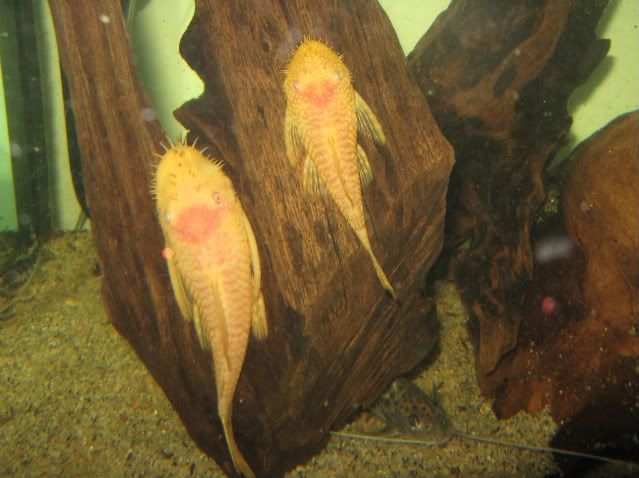Page 1 of 1
South American visitors
Posted: 02 Nov 2009, 00:13
by arcsb
Hi all.
I was looking after these two Pterygoplichtys disjunctivus that were I.D. for me on this forum.
They are now in their new home,but i managed to get some pic's of them before they went.
They enjoyed a varied diet while they were with me,but they also had all the bogwood and mopani wood in my tank that was covered in a nice thick coating of algae looking brand new.
I have only ever kept one Pleco back in the eighties but after keeping these two lovely Catfish short term i have really taken to them and i am seriously considering adding one or two smaller Plecos to my 200 ltr tank so any suitable suggestion's are welcome.

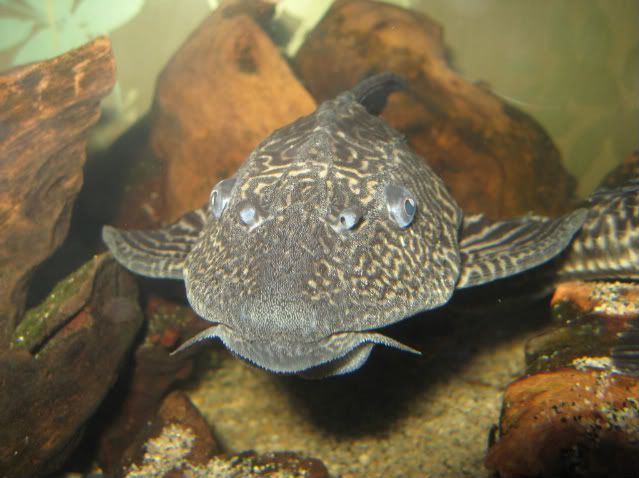
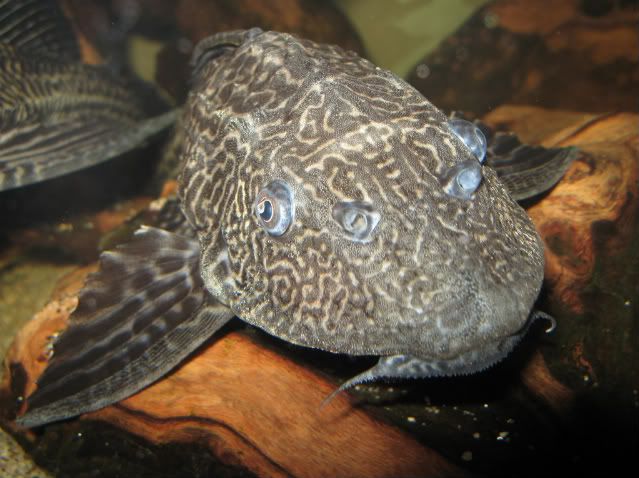
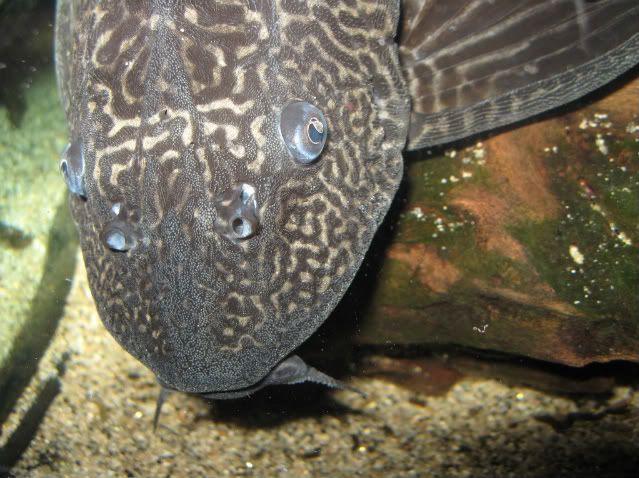
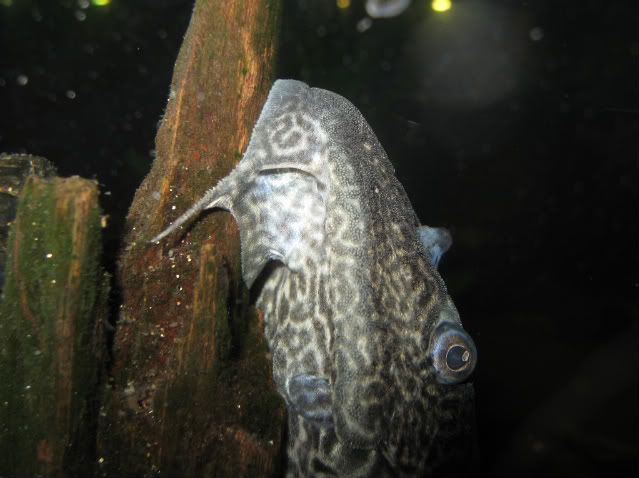
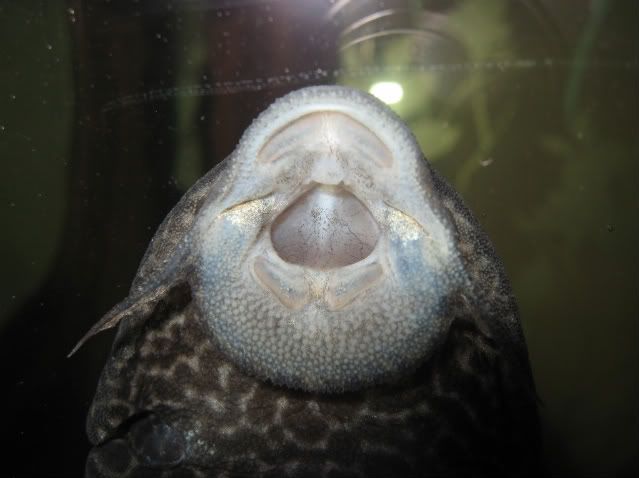
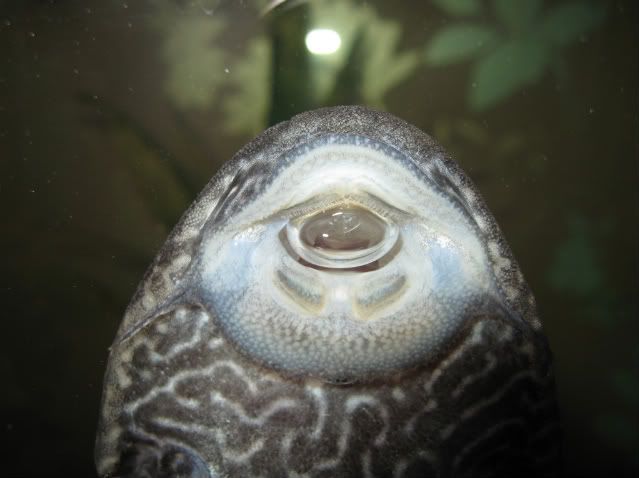
Re: South American visitors
Posted: 02 Nov 2009, 00:18
by Birger
There are so many to chose from...it may help to give your particular water conditions and what other tank inhabitants there would be.
Re: South American visitors
Posted: 02 Nov 2009, 00:38
by arcsb
Birger wrote:There are so many to chose from...it may help to give your particular water conditions and what other tank inhabitants there would be.
Thank's for the quick reply,the water condition's are ph6.4 and gh3,i also keep 1 P.armatulus,1 A.nauticus,5 P.pictus,1 Severum (which may be going this week) and 2 Firemouth Cichlids.
There is lot's of wood and slate in the tank with a mix of fine gravel and sand as substrate.
Re: South American visitors
Posted: 03 Nov 2009, 01:17
by Birger
I would say a good starter pleco would be the common
still has lots of character and is not too big for your tank, fairly easily bred and then one can move on from there. I always seem to have some around, my current being a breeding trio raised by myself.
A pair of these with the fish you have is lots for this size of tank IMO.
Birger
Re: South American visitors
Posted: 03 Nov 2009, 22:06
by arcsb
Thank's Birger,i will be visiting a freind who breed's Black Eyed Bristlenose soon,i dont know their scientific name but if i get pair i will post some pic's,i think they are quite rare.
keeping the two big Plecos has made me realise just what so many people see in them and why they are so popular.
Re: South American visitors
Posted: 04 Nov 2009, 01:08
by Birger
i will be visiting a freind who breed's Black Eyed Bristlenose soon,i dont know their scientific name but if i get pair i will post some pic's,i think they are quite rare.
Make sure you check on the water conditions they are being kept in, some of the ancistrus sp. can be much more difficult to keep.
Re: South American visitors
Posted: 04 Nov 2009, 22:51
by arcsb
Birger wrote:i will be visiting a freind who breed's Black Eyed Bristlenose soon,i dont know their scientific name but if i get pair i will post some pic's,i think they are quite rare.
Make sure you check on the water conditions they are being kept in, some of the ancistrus sp. can be much more difficult to keep.
Thank's again,the fish are bred in tank's just a few mile's away from me so I assume the water condition's are the same,but they might not be,so that's a good point.
If they are sensative fish i will leave them and start of with something more suitable.
Re: South American visitors
Posted: 05 Nov 2009, 23:54
by arcsb
I went to my friend's house and I took your advice Birger and got these two lovely Albino Bristlenose that he was kind enough to give me

He has some quite amazing breeding project's and amazing Catfishes.
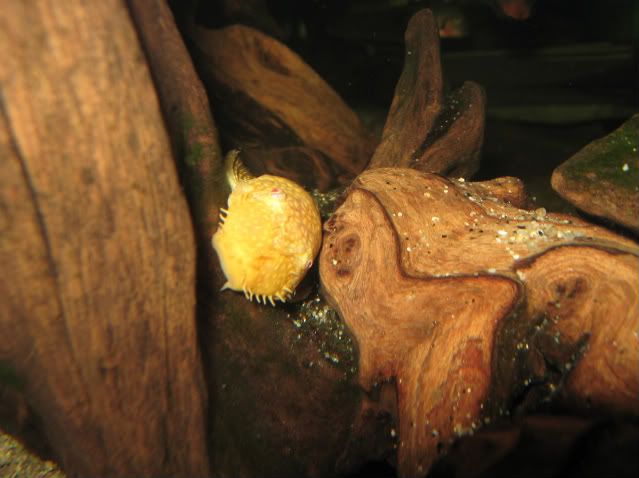
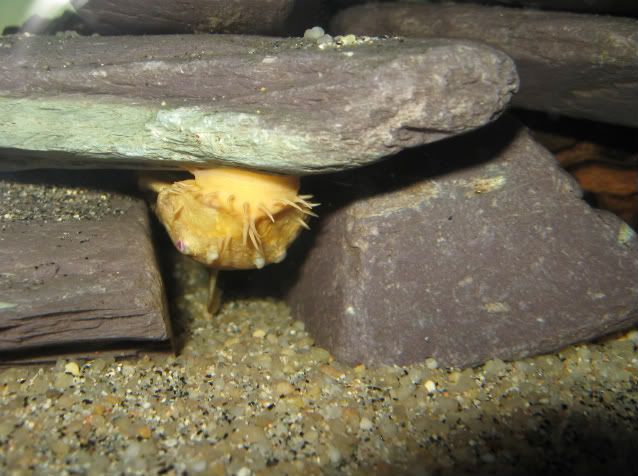
Re: South American visitors
Posted: 06 Nov 2009, 04:53
by Birger
Excellent...welcome to the world of catfish

Birger
Re: South American visitors
Posted: 06 Nov 2009, 09:07
by MatsP
Did you get two males, or is that two photos of the same fish?
--
Mats
Re: South American visitors
Posted: 06 Nov 2009, 20:34
by arcsb
Thank's Birger

Hi Mats,they are two separate fish,the one in the first pic is smaller and has much shorter bristles.
You might be able to see the one in the second pic has longer bristles,maybe this other pic of the smaller one will show the shorter bristles a bit better.
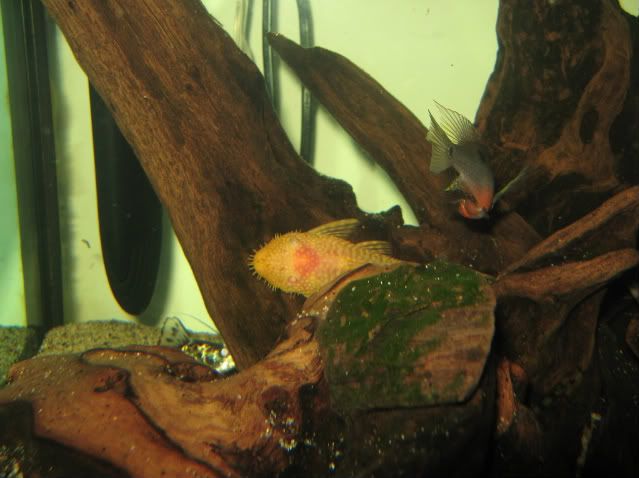
they have both been quite reclusive but have settled in well,I got a good look at them last night when they came out to feed while the moonlight l.e.d's were on.
I will try to get a pic of them together.
Re: South American visitors
Posted: 06 Nov 2009, 20:43
by arcsb
Sorry Mats,I forgot to say they are both male,my friend did say that sometimes females can have stuble and the smaller one might be a female.
Re: South American visitors
Posted: 06 Nov 2009, 20:58
by MatsP
I'm 100% sure that those are two males. The bristles going up the nose is a sure sign of a male.
--
Mats
Re: South American visitors
Posted: 06 Nov 2009, 21:25
by arcsb
MatsP wrote:I'm 100% sure that those are two males. The bristles going up the nose is a sure sign of a male.
--
Mats
Thank's Mats,they really seem to be enjoying the amount of wood i have in the tank,hopefully i will start to see more of them as they settle into their new home.
Re: South American visitors
Posted: 06 Nov 2009, 21:52
by MatsP
arcsb wrote:Thank's Mats,they really seem to be enjoying the amount of wood i have in the tank,hopefully i will start to see more of them as they settle into their new home.
I'm pretty sure they will be more forthcoming shortly.
--
Mats
Re: South American visitors
Posted: 07 Nov 2009, 13:08
by DJ-don
MatsP wrote:I'm 100% sure that those are two males. The bristles going up the nose is a sure sign of a male.
--
Mats
just to add on to that females can get bristles but definetly not up there noses. and females will never get forks on there bristles. the bristles are usually just small spikes aroun the bottom part of the head
Re: South American visitors
Posted: 07 Nov 2009, 19:57
by arcsb
I managed to get a shot of them together during a water change and while moving some of the decor around.
They were both on this piece of bogwood,I did'nt realise there was such a size difference between them.
Please excuse the mess during the water change I was opening up some more floor space for my P.pictus and making some bigger cave's for my P.armatulus.
They are becoming more active Mats and they are great to watch,thank you all for all the great information on these lovely Catfish.
